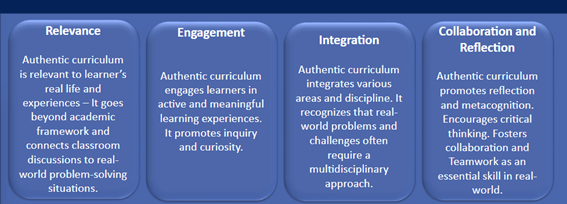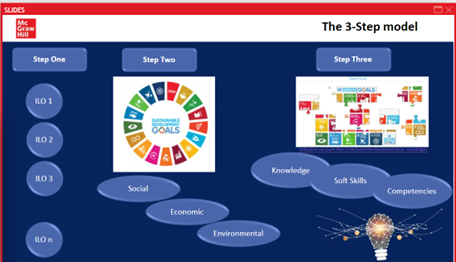Connections, collaboration and the curriculum: building sustainability in the Higher Education space
Connections, collaboration and the curriculum: building sustainability in the Higher Education space
In recent years the subject of sustainability has experienced an increase in focus across all walks of life. Consumers are more likely to make positive purchasing decisions on the back of sustainable credentials; packaging has become increasingly pertinent in buying behaviour, and Google searches on the topic have risen over a five-year window.
The field of education is no different, with more and more focus being placed on sustainability. Indeed, a book focusing on the topic written almost thirty years ago, highlights that, “Governments and Non-Government Organisations repeatedly point to education as a key policy instrument for bringing about a transition to sustainable development.”[1]
On account of that focus, it comes as no surprise that, “there is no shortage of books…and curriculum management materials that have been produced to encourage educators to address these at all levels of education.”[2]
And yet, 27 years after these words were written, articles from the scholarly community suggest that not enough has been done to embrace sustainability within the education sphere. One recent study, from 2023, looking at 128 HEIs across 28 countries, concluded that, “whereas many organisations are aware of the need for and the relevance of sustainable development and consider it as part of their institutional settings, the same cannot be said for the SDGs (UN Sustainable Development Goals), whose level of emphasis is that many HEIs are comparatively somewhat limited.”[3] Another piece, this time from 2020, states a similar message: “Besides all the efforts and the decades of discussion, the implementation of SD (Sustainable Development) oriented policies in HEIs is still new and the practices and reporting need to be developed and improved.”[4]
Keen to explore the issue, we recently hosted a session looking at the integral role Higher Education can play in ensuring sustainability efforts are front of mind.
In our discussions, it became clear that there are two distinct parts at play: the role of HEI in not just building awareness of knowledge of the topic but in creating leaders with specific skills who will be able to drive progress and, secondly, the need for networks and connections.
The role of HEIs in building leaders for the future equipped to move the needle on issues of sustainability
This was something Theo Ammari Allahyari, Senior Lecturer in Academic Development at the University of Sunderland, talked to; the issue of “universities looking to build the learners needed to make changes to wider society.”
He highlighted the role of the curriculum in building the correct skills and mindsets and pointed to four pillars that can be considered in building out module content.

For Theo, the point is that educators need to ensure the content they use is closely connected to real-world to bolster learner capacity to problem solve. He also highlights the cruciality of courses that enhance “inquiry and curiosity.”
When it comes to HEIs considering how to bring in sustainability into teaching in order for students to be aware of the issues, Theo suggested a practical approach. Using the 17 UN’s Global Goals for Sustainable Development[5] as a basis, Theo suggests that those involved in building courses should begin by reviewing them. “We encourage educators to look at the intended outcomes of their modules and, at a light touch, think about those that are most relevant to their teaching.”
After identifying those goals that are aligned to their course, Theo believes they can start creating targets—he suggests between 10 and 15—based on those. Lastly, he argues that there’s a consideration that needs to be made “around the social and economic dimensions. Can they add activities to think about those goals during learning?”
For Theo, these efforts are seeking to build “students who are capable societal leaders.” His 3-step model is pictured below.

For Jan Beyne, Researcher and sustainability expert at Antwerp Management School, this notion of using education to create the right type of leader rings true. He is focused on building global leadership skills across all Masters programmes at Antwerp University. “We’re looking to build ingenuity and self-awareness as well as a societal consciousness that will aid sustainability,” he said.
His module at Antwerp has been set up so that all Masters students are mandated to take it, “no matter whether they’re learning HR or Finance.”
The course also runs the duration of the academic year so that it’s fully entrenched in the mindset of the learners. “We really believe in experiential learning,” he said.
One of the big draws for Jan is the fact that they’ve set up specific seminars with the goal of enhancing both self-awareness as well as networks. The seminars are held on location, off campus, and learners from all Masters courses are brought together for these to learn from one another and share experiences.
“After we’ve created the networks, we focus on missions that are global in their perspective. We choose to mix people across different Masters programmes where they need to be able to measure their impact when it comes to sustainability. There is a fair where they present their projects and we also ask them to write a paper on their efforts. These things will have an impact.”
Another effort Jan and the team at Antwerp roll out is a close relationship with organisations. “We put on exchange events with a range of companies.”
The role of networking and relationship-building in enhancing progress in sustainability
Networking with each other and with those in industry was one area all those who spoke as panelists spoke about.
For Lorenzo Lotti, Associate Professor (Teaching) in Economics of Energy and the Environment at UCL, it is also paramount. The founder of the UCL Sustainability Higher Education Initiative, he is running an project linking “academics, alumni, students, those in the HE space and all those in the public who are interested in sustainability.”
“We are working together on the one thing that connects us: sustainability.”
One of the ways they look to do this is through making sure the topic is front of mind at national and international conference attendance.
They also run training courses for current international partners looking at how to teach sustainability and for companies they guide on best practice. They’re also writing their first book in this area of best practices.
Reflecting on the roles those within Higher Education can play, Dr. Katrin Muff, Professor of Practice at Luiss Business School, summarised by saying there are three key pillars integral to making progress related to sustainability goals. “It’s educating students capable of being leaders, it’s about producing research and it’s also about the institution walking the walk.”
***
The content in this blog post has been built from the webinar The sustainability imperative: how does HE need to change and how can it impact a societal shift? Registering to the event will give you access to the recorded sessions.
***
At McGraw Hill, we share in the duty of global businesses to react to the climate emergency by changing our practices to become more sustainable. Our authors and editors are committed to ensuring sustainability receives the profile and attention it deserves; it is being woven into as many of our appropriate titles as possible.
[1] Huckle, J, Sterling, S. (1996). Education for Sustainability (1st ed.) Earthscan.
[2] Huckle, J, Sterling, S. (1996). Education for Sustainability (1st ed.) Earthscan.
[3] https://www.tandfonline.com/doi/abs/10.1080/13504509.2023.2167884?cookieSet=1
[4] https://www.researchgate.net/profile/Carolina-Grano/publication/344666922_Sustainable_Development_Goals_in_Higher_Education/links/5f880732458515b7cf81f9d4/Sustainable-Development-Goals-in-Higher-Education.pdf
[5] https://sdgs.un.org/goals

